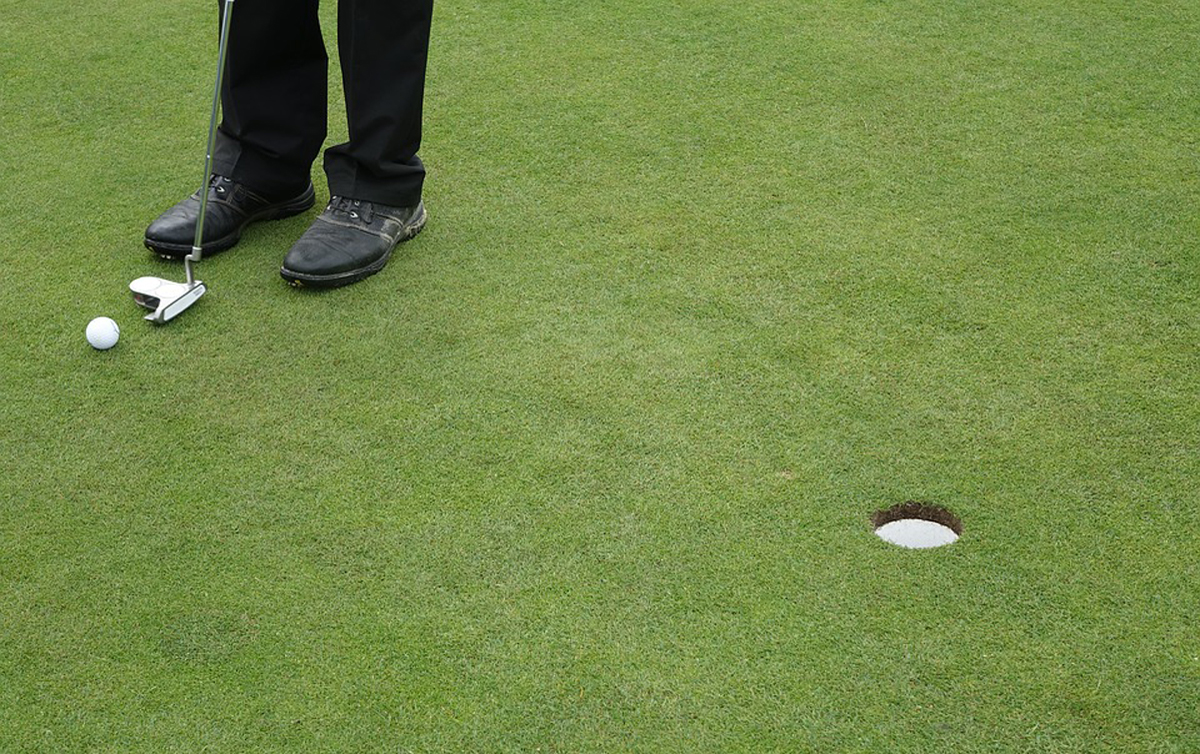 I have concluded two very important factors that will influence an individual’s desire to enjoy a round of golf: practicing your short game (chipping, pitching, putting, and sand shots) and having the opportunity to observe an array of players hit range balls for a period of time.
I have concluded two very important factors that will influence an individual’s desire to enjoy a round of golf: practicing your short game (chipping, pitching, putting, and sand shots) and having the opportunity to observe an array of players hit range balls for a period of time.
“People watching” on the driving range has the potential to be one of the last great free shows in entertainment to witness in person. People’s emotions tend to show up ominously when hitting range balls. The best part is that it’s free just to sit and watch these spectacles. The sounds of the driving range usually involve grunting, cussing, moaning, and heavy panting from errant mishits. For several golf connoisseurs, the driving range is a way to release frustration and should be encouraged; however, for the diehard range player, this could be the way of life. So I would like to help these diehard divot diggers this month to help make their range game transform their golf game.
Preshot routines are important when hitting balls on the range. Swinging consecutively, ball after continuous ball, will yield unfavorable results that won’t be consistent with any particular goal a golfer would want to possess. Preshot routines lead to better focus, more consistent results, less nerves, and better golf. The average golfer will score 95–100 on 18 holes, which means on their best putting day and chipping day they will swing 40–50 full shots over a 4-hour round of golf, yet on the driving range they will hit a 100 balls in a half hour?! Taking one’s time practicing is important to developing trust in their swing. Time your preshot routine, making sure it’s consistently the same amount of time. Having a preshot routine that is within 1–2 seconds of your average 100 percent of the time is much more of a accomplishment than hitting 100 balls with a driver as quickly as possible. Try hitting 30 balls in an hour instead of 100 balls in half an hour.
A common theme that helps players dial in their own games on the range is to practice with all the clubs, not just one’s favorites. It is important to change clubs every 2–3 swings, such as moving from a wedge to an iron, an iron to a wood, or a wedge to a hybrid, for example. Physically, the body will learn to adjust as it does on the golf course to different weighting and lengths that differ between all the clubs. It is very rare (unless you are putting) that you will use the same club in consecutive shots, so why would one practice that way?
Focus on practicing with your wedges 50–66 percent of the time. A great way to tell any great short game player is to see how much his grips on his wedges are worn down compared to all his or her other clubs. A great wedge player can hit various distances with a particular wedge based on preshot routine, technique, and trust through experience.
For more information on preshot routine including an exciting scientific breakdown of the preshot routine, please check out this link.



